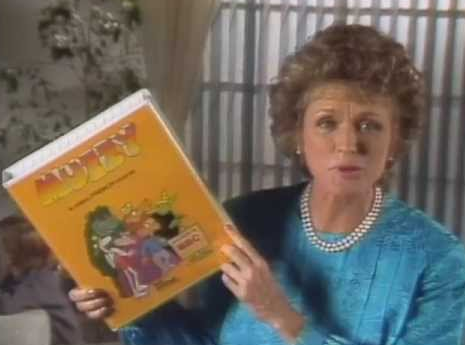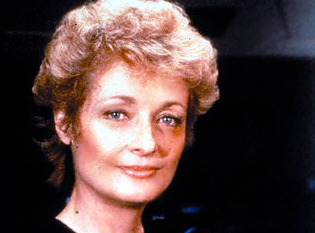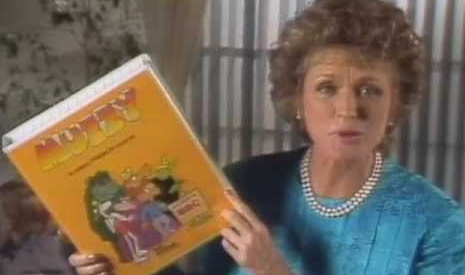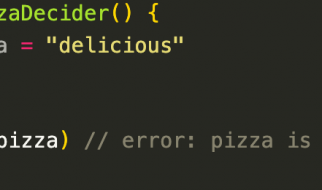How a trippy language program for immigrants became a children?s classic.
If you grew up watching children?s television in the late 80s and early 90s, chances are you remember this commercial:
Muzzy/YouTube
Muzzy, the marble-mouthed extraterrestrial, dominated Nickelodeon?s commercial breaks for years, promising parents that in exchange for six low payments of $28.17 (plus shipping) that their children would become fluent in French, Italian, Spanish or German.
For those of us with parents who were either unwilling or unable to shell out $170 for a children?s version of Rosetta Stone ? with inflation, that would be roughly the equivalent of $315 today ? Muzzy existed in a vacuum. It was a vaguely annoying commercial that got stuck in our heads, taught us one line of French and prevented us from watching ?Darkwing Duck.?
But who is Muzzy? And how could he be expected to teach children new languages when he himself was so incapable of enunciating? After stumbling upon this Reddit thread, I realized I had to learn more about the shaggy, multilingual alien.
Who is Muzzy?
Muzzy is the star of ?Muzzy in Gondoland,? a video language program produced by the BBC and targeted towards kids under age 12. Muzzy was not the BBC?s first foray into language learning ? in the late 1970s, the network produced ?Follow Me!? a television series that taught English to foreigners; in China, an estimated 500 million people watched the show.
?Follow Me!? was such a financial success for the BBC that the network decided to make a similar program marketed towards children. To create the course, the BBC hired ?Follow Me!? writer and producer, Joe Hambrook, and paired him with a well-known animator, Richard Taylor.
The BBC was taking a bit of a gamble in creating Muzzy ? experts had previously advised them that children lacked the motivation to learn outside the classroom. And when Muzzy was released in 1986, sales were poor. Federico Mallo, an agent for the BBC who sold ?Follow Me!? and ?Muzzy? in the US and across the Americas, told me that the problem with Muzzy wasn?t the content, but the packaging and presentation.
The BBC?s choice to market the product to immigrants also proved problematic; few immigrants owned credit cards and even fewer had the disposable income necessary to buy such a luxury item. So Federico approached the BBC with an alternative plan: Why not use the program to teach foreign languages to English-speaking children?
After acquiring the world rights for Muzzy in Spanish, French, Italian and German, Federico worked with Muzzy?s writer and animator to extend the program from an 80-minute VHS tape and book to a comprehensive product that included five hours of video, plus additional supporting materials. Federico estimates that between his sales in the Americas and his father?s in Spain and Italy, that Muzzy has sold over 22 million copies (this number does not take into account sales from other distributors.)
With Federico?s new strategy in place, ?Muzzy in Gondoland? and its 1989 sequel, ?Muzzy Comes Back? sold well and became especially popular in schools, where teachers could pop the videos in, take a break and allow Muzzy and his friends to help expand their students? vocabularies.
Who is Muzzy?
Muzzy is a hairy, blue-green alien who enjoys eating clocks and other metallic objects; his most defining characteristic is that he is big. Muzzy fans suggest that the name ?Muzzy? might be a portmanteau ? a combination of the words ?monster? and ?fuzzy,? but this has never been officially confirmed.
The other inhabitants of Gondoland are similarly insane: there?s King Nigel, and Queen Ezra (as voiced by Miriam Margoyles who later went on to portray Professor Sprout in the ?Harry Potter? films). Their daughter, Princess Sylvia, is the romantic lead who is pursued by both Bob the gardener and Corvax the green goblin.
Throughout the course of the movie, Muzzy visits Gondoland in a spaceship, goes to jail for eating too many parking meters, breaks out of jail by eating through the prison bars and saves Gondoland from the many princess clones that Corvax releases in an attempt to make Sylvia return his unrequited love. Viewers never learn why Muzzy and his spaceship have come to Gondoland, but such is the beauty of Muzzy; he exists completely outside of the realm of context.
These children aren?t French ? they?re American
The advertisements for Muzzy ran so frequently in the 90?s that for many people, the commercial evokes more nostalgia than the videos themselves. Federico says that two Muzzy commercials ran in the US ? a French version and a Spanish version, with the French version consistently outperforming its Spanish competitor.
The French commercial?s lead actress, known best as ?the woman in the blue dress,? is a beloved figure to many, but she has never been officially identified. Some on the internet speculate that she might be American actress Diana Muldaur, who is perhaps best known for appearing in ?LA Law? and for playing Dr. Katherine Pulaski in ?Star Trek: The Next Generation.?

 Lady in the Blue Dress/ Diana Muldaur
Lady in the Blue Dress/ Diana Muldaur
Growing up, I caught Muzzy?s commercials once or twice while watching Saturday morning cartoons, but I never saw the full film. As an adult, I have access to YouTube, so I hunted down a free version of ?Muzzy in Gondoland.? Watching the film felt like a very surreal, somewhat boring hallucinogenic trip ? repetition works great as a tool for language acquisition, but it makes for a very weird cinematic experience.
Parts of Muzzy have not aged well ? watching the 1986 film with 2016 eyes made me especially aware of some of the more problematic moments, including one cringe-worthy sequence where the Queen rotates in front of a full-length mirror, staring at herself and repeating the phrase ?I?m fat.?
But as strange as it was for me to watch Muzzy as an adult, I got the impression that watching it as a child would be even more unnerving. I reached out to fellow Dose writer, K. Thor Jensen, who used Muzzy between 4th and 6th grade. Thor first saw the movie in his 5th grade Spanish class. He hasn?t seen it since 1988, but he remembers it being ?a series of weird half-surreal events.? Even now, almost thirty years later, one image still haunts him:
?There?s one scene that has stuck in my memory, when the weird goblin antagonist [Corvax] uses his computer to make a duplicate of the princess. It was such a weird scene because visually, the thing felt so dated and alien, but we all knew what computers were, so it had to be sort of modern.
Muzzy, revived
?Muzzy in Gondoland? had a pretty good run ? after poring over Reddit threads, it appears people watched the movie in foreign language classes well into the early aughts. And in 2014, the BBC released a new, updated version of the course.
Federico Mallo, who spearheaded the effort to make Muzzy more modern, told me that his team made a conscious choice to retain Muzzy?s original script and characters. Updates were made to the movie?s animation, music and voices and Federico was quick to point out that, following many complaints, all instances of fat shaming have been removed. To adapt to today?s tech-heavy climate, there are over 400 Muzzy games available online and children can stream the program using their mobile devices.
Federico says the most difficult part of updating Muzzy was casting the role. The British stage, screen and voice actor Jack May ? who voiced the original Muzzy ? passed away in 1997. Federico listened to hundreds of professional voice actor auditions before finally hearing one that he liked. It belonged to his video editor, James Thomas, who jokingly filled in the Muzzy role while testing out animations. He ended up landing the lead.
As a movie, Muzzy is captivating in its absurdity ? my favorite moment occurred within the first two minutes of the film, when, apropos of nothing, a guy rode in on a bike and broke into song, the first line of which was ?Good morning. I?m normal.?
Truly, nothing about Muzzy is normal. But that?s what makes it great.


